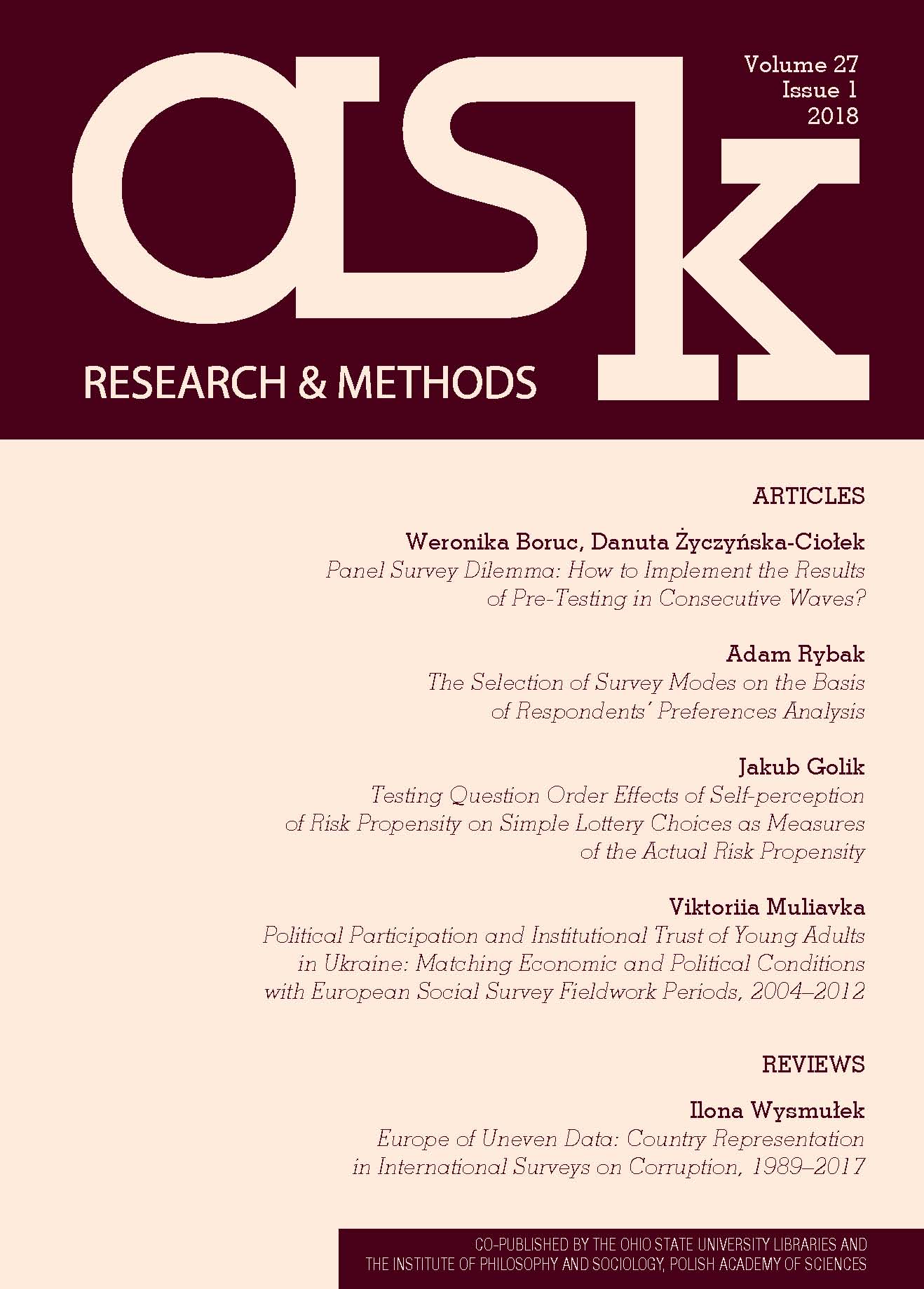The Selection of Survey Modes on the Basis of Respondents’ Preferences Analysis
The Selection of Survey Modes on the Basis of Respondents’ Preferences Analysis
Author(s): Adam RybakSubject(s): Politics, Sociology
Published by: Instytut Filozofii i Socjologii Polskiej Akademii Nauk
Keywords: mode preference; mixed-mode survey; nonresponse error; measurement error; response rate; predictors of mode preference
Summary/Abstract: The following study addresses the problem of predicting the respondents’ survey preferences when implementing a mixed-mode survey design. Most previous experimental research implies that offering respondents the choice of modes results in a drop in response rates. The consequence of that effect is a need to establish survey mode preference predictors that will make the improvement of mixed-mode survey quality possible. Sending a request for participation in the applied mode to a subcategory of the sample, the one we suppose would most likely prefer that mode, can raise response rates, and quality of measurement, and sometimes reduce the costs of the research. Because of the practical aspect, these predictors should be included or be deducible from the survey frame and restricted to the specific sociocultural area. This article will include an overview both of strategies of mode preference research and of possible predictors of preference itself. Then the ESS Mixed Mode Experiment from 2015 conducted by the team from the Polish Academy of Sciences will be presented. The data from this experiment was used to create logistic regression models analyzing which socio-demographic variables influence the mode preference among Polish respondents. One possible application is use of the conclusions to address future participation requests, which will be based on the mode probably preferred by the specific sample members.
Journal: ASK. Research & Methods
- Issue Year: 2018
- Issue No: 27
- Page Range: 23-39
- Page Count: 18
- Language: English

